The morning broke with brilliant sunshine and a scattering of puffy white clouds. The temperature was warm from the moment we walked out of the tent (oh, the advantage of a 6-foot-tall tent when one is 5-foot-8). After a hearty breakfast, we hoofed it over to the Little Wild Horse-Bell canyons trailhead about a half mile west of the campsite.
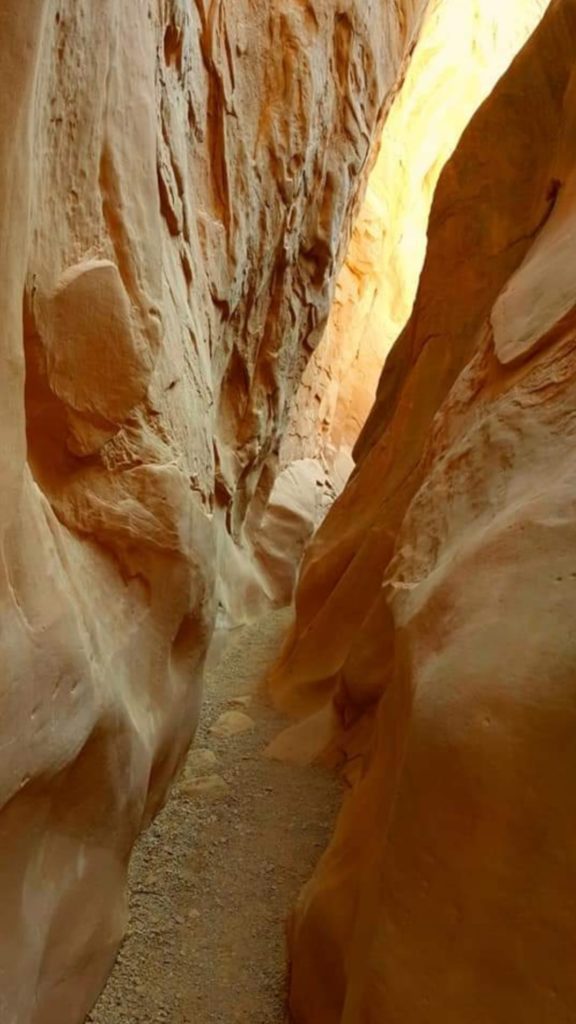
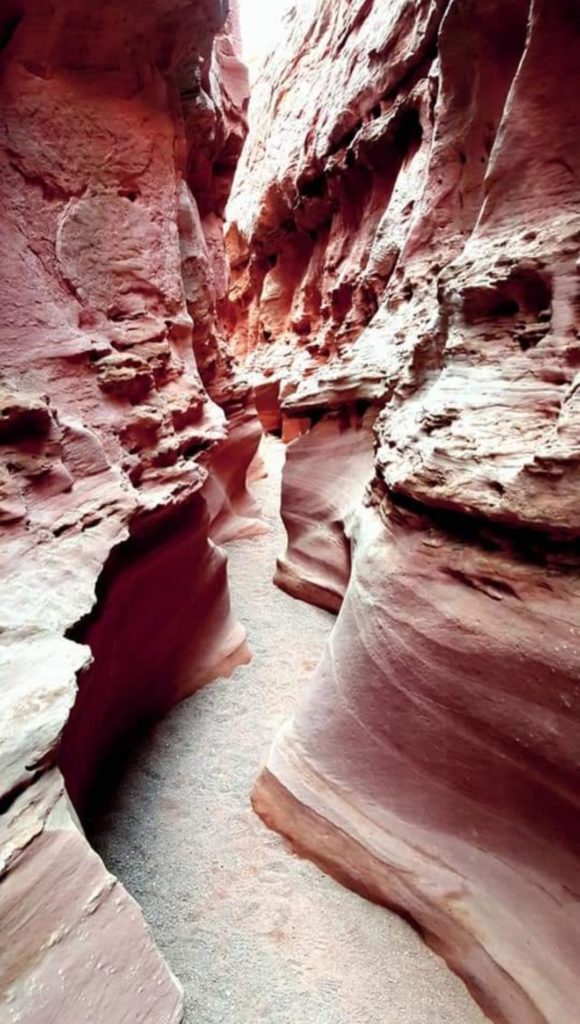
The duo creates an eight-mile loop through two popular slot canyons. Even though it was barely 8:00 in the morning, families, scout troops and church groups were amassing for the walk up the Little Wild Horse wash into the canyon’s entrance. Check out Join hands to support the existence and bright future of Salt River wild horses
There’s a surprise waiting around the bend in the wash. A massive sandstone slab slid off the canyon wall in one piece and lodged across the wash. There’s a four-foot scramble to get onto the slab or a narrow canyon wall trail that hikes from the wash to the slab. Parents were boosting their kids onto the flat platform and scrambling up the broken boulders as a stairway.
During a flash flood after a storm, this must be quite a beautiful waterfall that no one can safely observe.
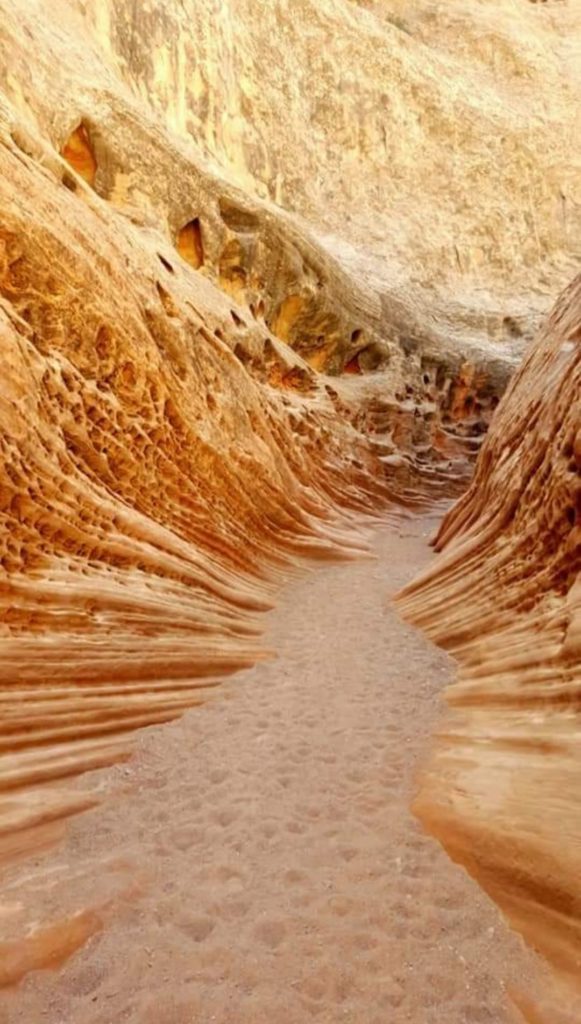
There’s a sweeping “S” curve on the soft sandy wash, and we head into Little Wild Horse Canyon. About the first mile, the lower part of the trail is where most of the traffic is coming and going. Some slots are so narrow that hikers turn sideways to squeeze through the slot.
There’s no room to pass each other. First, a group goes into where the canyon widens a couple of hundred feet up the trail, then a group comes waiting in that room and marches out, and the pattern repeats.
The destination is a giant boulder about the size of a Honda Civic stuck between canyon walls. Kids run back and forth under it, and adults crawl or crabwalk through. For most, this is the hike’s terminus—especially with kids. From here, things get a little more adventurous with a tempering that keeps the trail in the easy+ or moderate-minus difficulty category. The total length of the loop makes it a moderately strenuous hike.
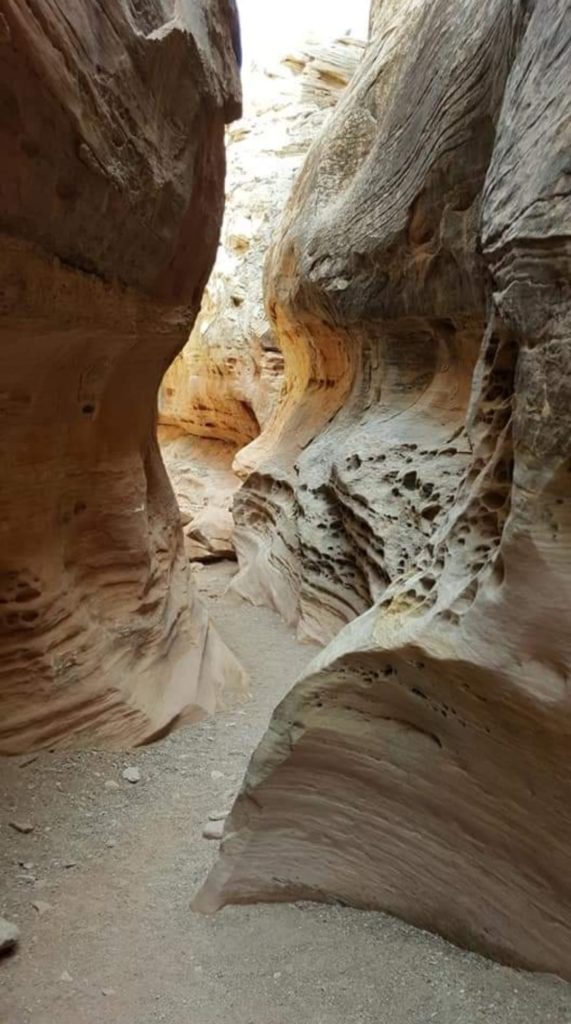
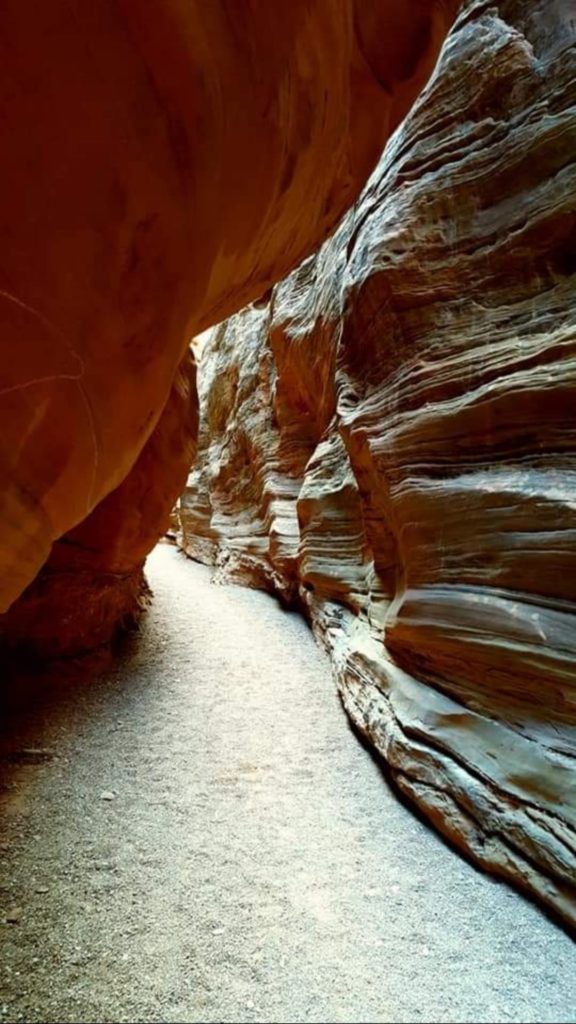
The share and curves of the canyon wall carved and smoothed by roaring water make for unusual patterns and natural artwork. The trail is mostly soft sand, easy for walking and forcing a take-time-to-look pace. It’s firm enough to give softness to the step and firm enough to support a good pace.
There are a few places where slight scrambles are required, but none that reach the level of “climbing.” One spot offers three options to rise about five feet from the wash to the next level. The canyon is narrow and grooved enough to shimmy up with one foot and hand on each wall. The second option is to pull up and squirm on the higher ground. The third option is to grab the arm of the person above you and take the boost upwards to the higher ground.
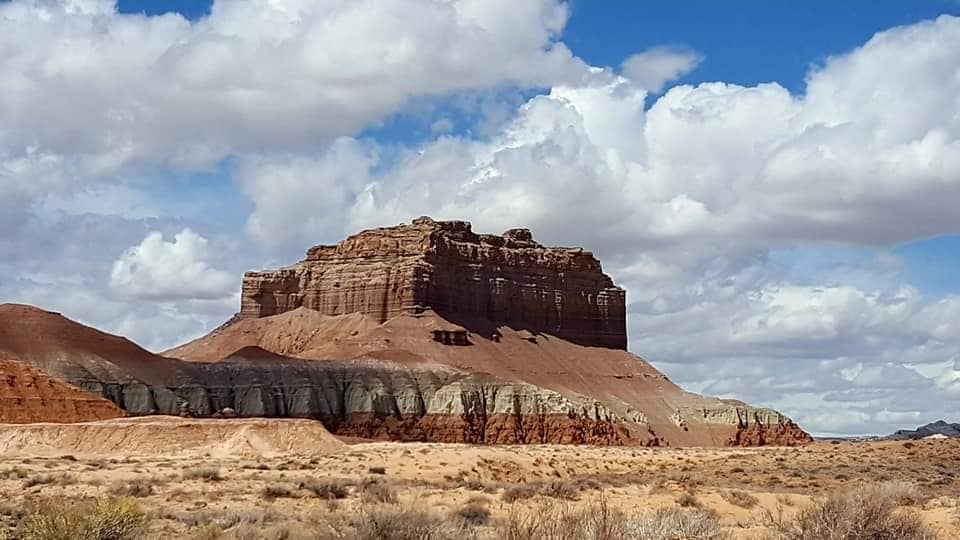
Once past this point, the trail climbs gently with a long, slow elevation gain of 400 feet before reaching Behind the Reef Road at the upper mouth of Little Wild Horse Canyon. Walking the 4×4 trail atop Little Wild Horse Mesa, it’s about a half mile, maybe a hair longer, to reach Bell Canyon Trail to return to the parking area. Bell Canyon Trail, about two miles long, drops about 400 feet along its entire length to the Little Wild Horse Canyon Trail junction. It’s an easy hike on that firm, soft sand.
Ankle-support hiking boots, like the pair I bought on sale at REI just before the trip, are recommended, although my companion wore low-cut hiking shoes. The sand is soft enough that an ankle sprain is possible with a foot landing wrong. It’s an eight-mile hike that will take around four to five hours, depending on pace and sightseeing. Remember to carry at least one liter of water per hour. On a long hike like this, an electrolyte replacement is necessary at least once, preferably twice, during the hike. I always use trekking poles, which are not essential on this hike, and proper use does take pressure off the knees.
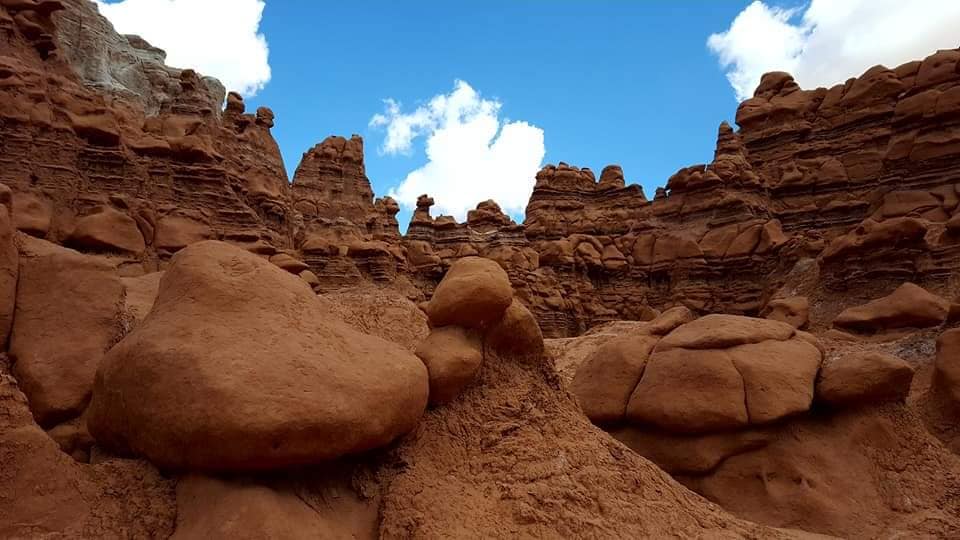
Little Wild Horse is shady and cool regardless of the air temperature hiking into the canyon, making it a great heat relief on a summer day. Bell Canyon is wider than its partner in the loop, so warm temperatures can be felt in some more open passages.
Story by Eric Jay Toll

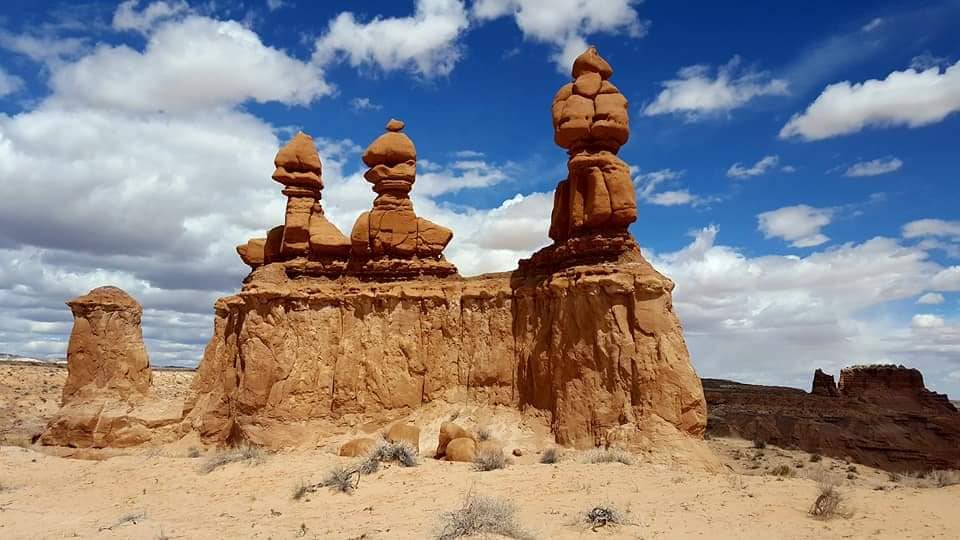
1 comment
lb8hmj